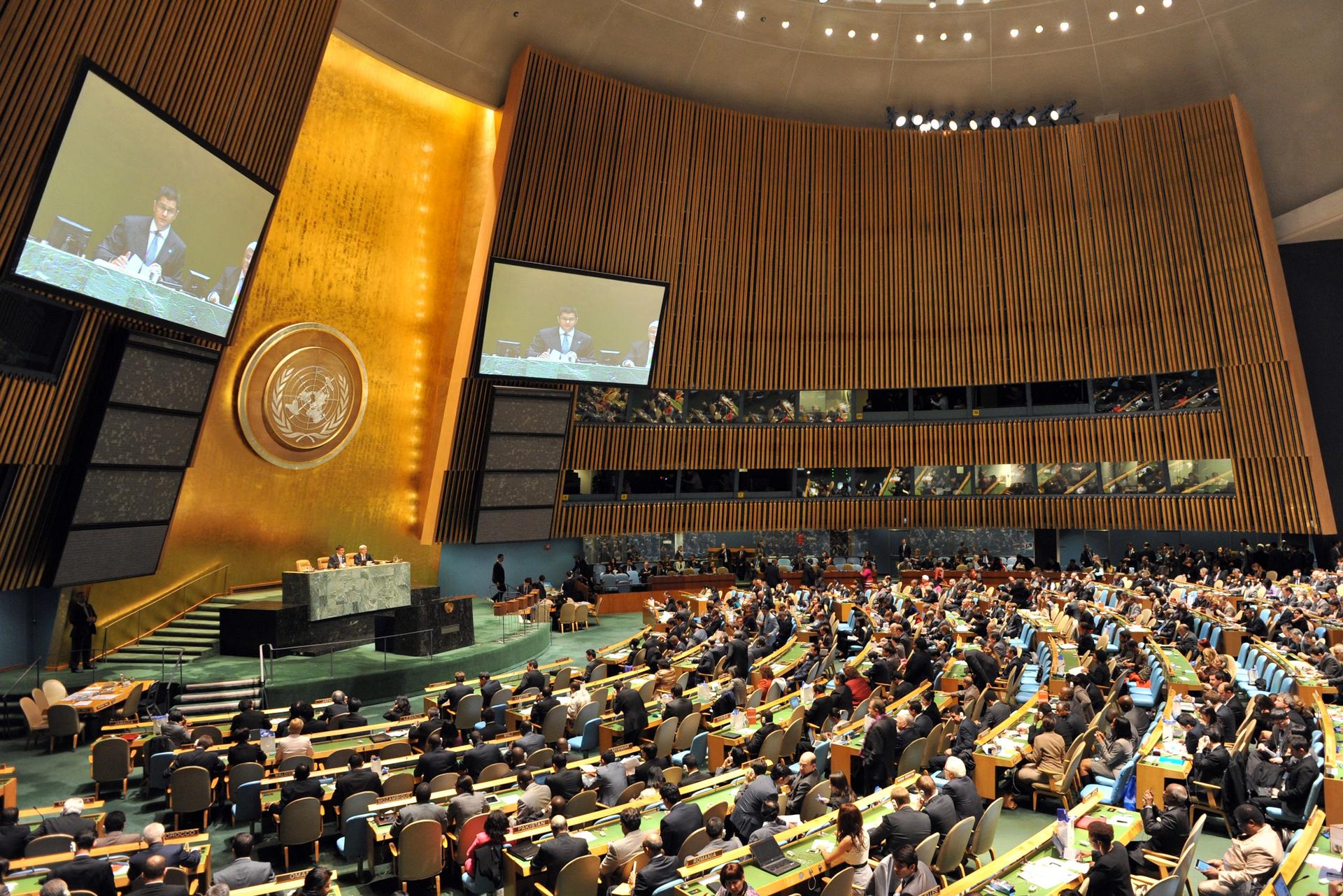Europe divided over Palestinian UN bid
With no veto available to objecting countries such as the United States in the UN General Assembly, support from powerful European states has been seen as crucial to the legitimacy of Palestinian demands.
LONDON, UK — Today’s United Nations vote on elevating the Palestinian status has exposed European concerns over how it would affect the Middle East peace effort even as the continent anguishes over the prospects for a long-term resolution.
Although European countries strongly support a two-state solution to the crisis, several major powers say they’re concerned granting the Palestinians the title of non-member observer state is premature.
Mahmoud Abbas, president of the Palestinian national authority, has worked hard to win over European representatives, some of whom pushed their decisions down the wire.
With no veto available to objecting countries such as the United States, support from powerful European states has been seen as crucial to the legitimacy of Palestinian demands — and for restraining Israel from retaliatory measures.
Significantly, the European Union — which does not have a bloc UN General Assembly vote — has expressed its disapproval of unilateral Palestinian moves, and called for the resumption of direct Israeli-Palestinian peace talks instead.
Spain nevertheless appealed for EU countries to stand shoulder-to-shoulder, but failed to rally all 27 members behind its own decision to vote yes.
Spanish Foreign Minister Jose-Manuel Garcia-Margallo said upgrading the Palestinians from their current observer entity status was "the best way to move toward peace."
"We would have preferred as a government if we had not been obliged to arrive at a vote because that would have meant that peace negotiations had advanced," he said.
Spain's support came a day after French Foreign Minister Laurent Fabius announced his country would vote yes. Fabius denied he had fallen out with Francois Hollande over the decision despite the president’s remarks last month that appeared to oppose the move.
During a visit to France by Israeli Prime Minister Benjamin Netanyahu, he spoke of the "temptation for the Palestinians to seek at the UN General Assembly what they cannot achieve through negotiation." He insisted negotiation is the only solution to the Middle East question.
Besides France and Spain, at least 11 other European countries signed up to support the Palestinian bid. They include Austria, Denmark, Norway, Finland, Greece, Iceland, Ireland, Luxembourg, Malta, Portugal and Switzerland.
Both Britain and the Netherlands had appeared set to join them before backing away at the 11th hour. Dutch Foreign Minister Frans Timmermans said the move wouldn’t help the peace process, while his British counterpart William Hague said the UK would join Belgium and Lithuania in abstaining unless a commitment to unconditional talks with Israel were made.
Hague said Britain also wanted guarantees the Palestinians would not seek to place their territories under the jurisdiction of the International Criminal Court, a move that would inflame tensions with Israel.
"Up until the time of the vote itself, we will remain open to voting in favor of the resolution if we see public assurances by the Palestinians on these points," he said in a statement to British lawmakers.
"However, in the absence of these assurances, the UK would abstain on the vote. This would be consistent with our strong support for the principle of Palestinian statehood, but our strong concern that the resolution could set the peace process back."
More from GlobalPost: Why the Palestinians' UN bid is pointless
Hague's statement opposed the wishes of the opposition Labour Party, which has been a steadfast supporter of Palestinian recognition. Jenny Tonge, a member of the House of Lords, said the foreign minister's terms sent a dangerously mixed message.
"By making our government's support for the UN bid conditional on Palestine not pursuing Israel though the ICC, is the government not admitting Israel has committed war crimes in Gaza and the West Bank and is seeking impunity for that country?"
In Germany, Foreign Minister Guido Westerwelle said his country's opposition to the Palestinian bid had come only after some deep soul searching.
"The decision wasn't taken lightly," he said. "Germany shares the goal for a Palestinian state. We have campaigned for this in many ways, but the recent decisive steps toward real statehood can only be the result of negotiations between Israelis and Palestinians."
